Entrepreneur Stories
How IKEA India Is Different
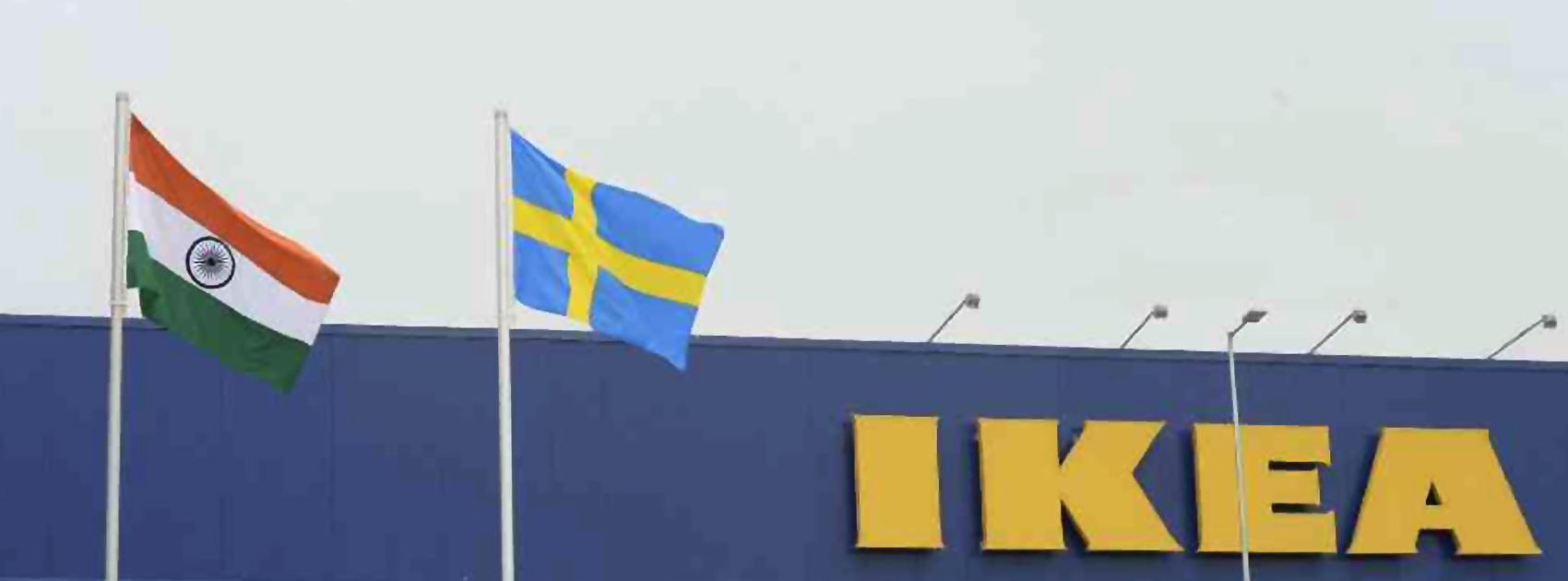
IKEA, the largest furniture retailer, finally launched their showroom in India after a fair amount of struggle. The opening was initially intercepted in 2006 due to the Indian restrictions on foreign investment. The rules were later relaxed.
When it finally opened on 9 August, a staggering number of 40,000 customers visited the store on the first day.
#WATCH Stampede like situation at public opening of Swedish home furnishing brand #IKEA in Hyderabad, yesterday. pic.twitter.com/Ta5izho02E
— ANI (@ANI) August 10, 2018
The Swedish Ambassador, Klas Molin, attended the opening ceremony along with the Information Technology, Municipal Administration and Urban Development (MAUD,) Textiles and NRI Affairs Minister of Telengana, K Taraka Rama Rao.
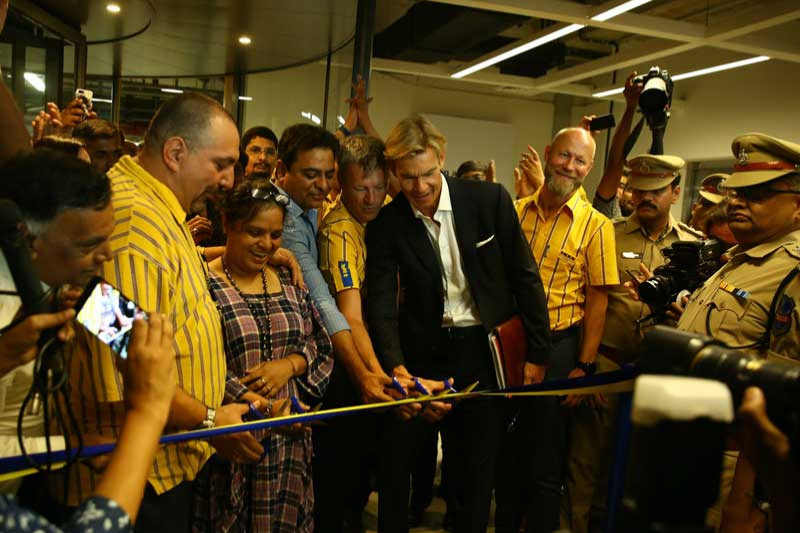
Situated on a 13 acre land on the outskirts of Hyderabad with over 7,500 products on sale, IKEA expects over six million consumers to visit the store every year. By employing over 950 people at its Hyderabad store, IKEA aims at creating over 1,500 additional jobs.
Ikea’s first India store looks like this.
Read: https://t.co/SEj4OmmWCP pic.twitter.com/qXmDoKOxyM
— BloombergQuint (@BloombergQuint) August 8, 2018
To suit the Indian market, the Swedish brand has made various alterations as the average annual salary in India is less than $2000. The changes include the sale of idli making appliances, as well as spice boxes for people who, according to John Achillea, Store Manager, have “big aspirations for their homes and small wallets.” For example, a cutlery set for kids costs only Rs. 131. There are over 1,000 items on sale for less than Rs. 200.
Inside India’s first ever Ikea store in Hyderabad. 🇮🇳🛋️https://t.co/Ed3572xtCA pic.twitter.com/ca5jvDXKqD
— BBC Business (@BBCBusiness) August 9, 2018
The store includes a 1,000-seat cafeteria that is among the largest in India. There have been changes made to the classic IKEA menu. For example, the Swedish meatballs have been replaced by Samosas, Biryani, and Dal Makhani.
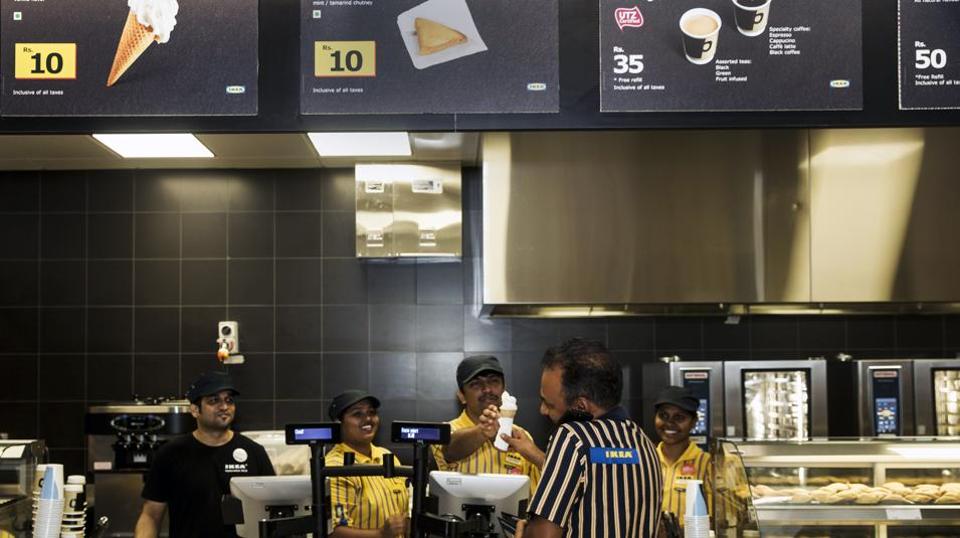
The lack of “Do It Yourself” (DIY) culture and the abundant amount of cheap labour available, the company has partnered with UrbanClap, an application that connects handymen with customers, to provide more services.
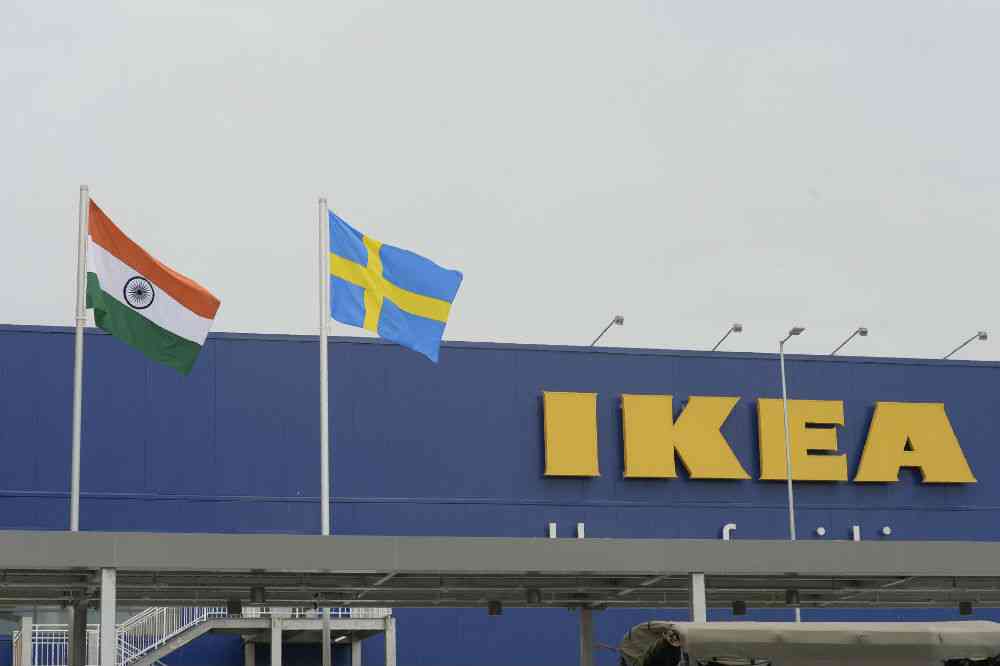
IKEA plans to expand in India over the next few years with stores in Bangalore, Mumbai and a suburb of New Delhi. It has invested over Rs. 10 billion and plans to hire over 15,000 employees in the country by 2025. IKEA said half of its Indian team of workers would be women.
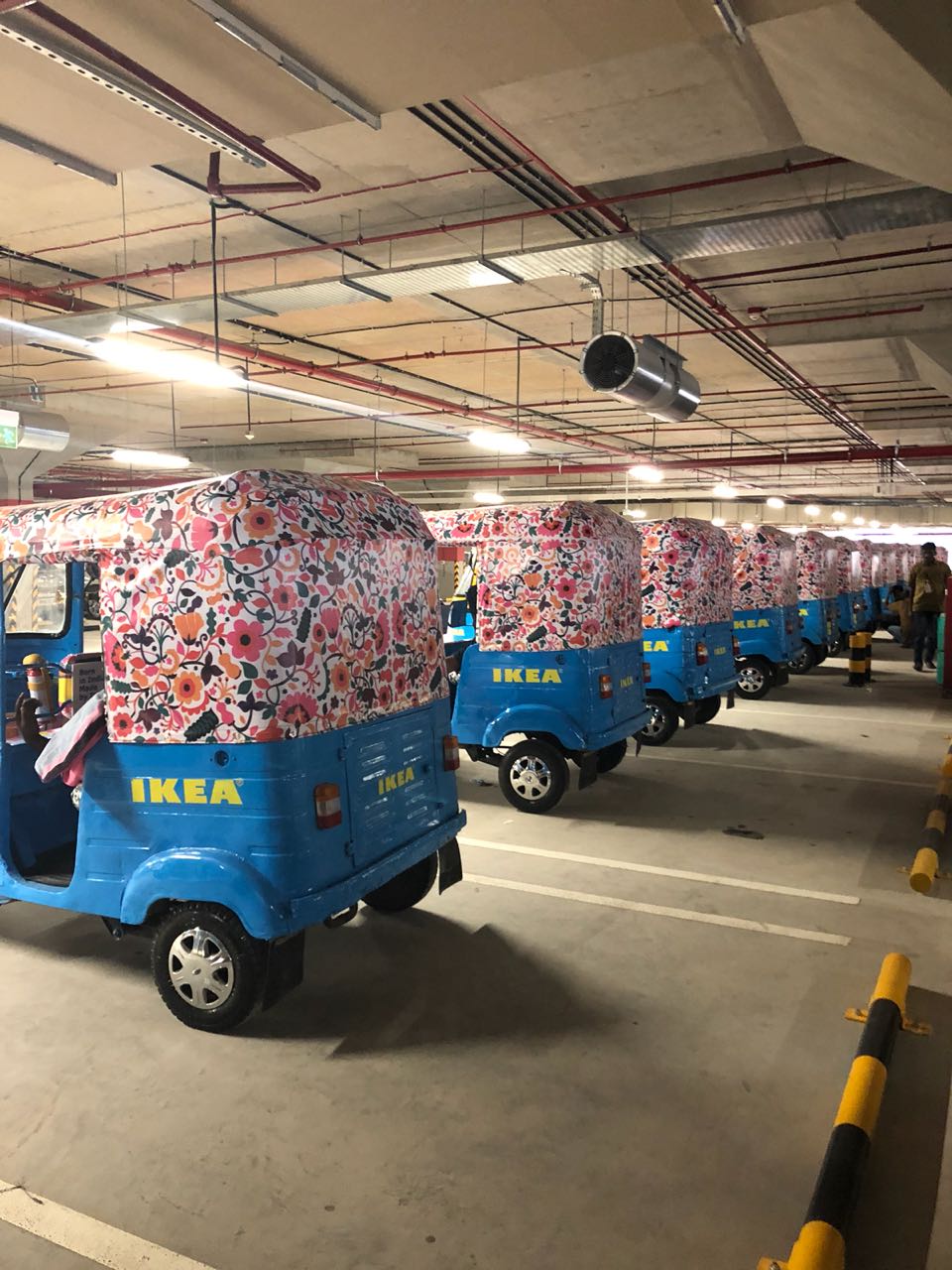
IKEA is going to revolutionise the furniture industry as most of the Indian consumers buy non-brand furniture. Its major competitors currently range from Godrej Interio, Future Group’s HomeTown to Durian Furnitures.
Spotted this morning on the conveyor belt at Hyderabad airport: lots of #Ikea cartons. All empty. Just announcing that the first Ikea store in India opens today! How cool is that. Take a bow – whoever thought of this innovation. And welcome to India @IKEAIndia pic.twitter.com/9YkrTgdZtq
— Prakash Iyer (@prakashiyer) August 9, 2018
Entrepreneur Stories
Zupee Bolsters Short-Video Play with Vertical TV Acquisition Under INR 40 Cr

Delhi NCR-based gaming startup Zupee has acquired Mumbai-based microdrama platform Vertical TV in a deal valued under INR 40 Cr. This move strengthens Zupee Studio, its short-video arm launched in September 2025, by integrating Vertical TV’s expertise in bite-sized dramas like romance and thrillers.
Facing challenges from India’s 2025 real-money gaming ban, Zupee valued at $1 Bn after raising $120 Mn has pivoted to non-gaming content, including recent layoffs of 40% of its workforce. The acquisition builds on its November 2025 purchase of Australian AI firm Nucanon for interactive storytelling, targeting its 200 Mn+ users with engaging, mobile-first formats.
This deal underscores the rising microdrama trend in India, helping Zupee diversify amid regulatory pressures and compete in the short-video space dominated by quick, shareable content for on-the-go audiences.
Videos
T.N. Seshan: The Fearless Reformer Who Redefined Indian Democracy

T.N. Seshan’s name stands tall in India’s history as the man who transformed the nation’s electoral system with extraordinary courage and integrity. Born in 1932 in Kerala, Seshan grew up with values of discipline, education, and service to the nation — virtues that shaped his illustrious journey. From his early brilliance at Madras Christian College to his advanced studies in public administration at Harvard University, Seshan’s path reflected rare determination and intellect. Joining the Indian Administrative Service in 1955, he built a reputation as a no‑nonsense officer committed to efficiency and honesty, serving in key roles such as Secretary of Defense and overseeing vital national programs.
As the Chief Election Commissioner of India in 1990, T.N. Seshan sparked a new era of electoral integrity. In a system once marred by corruption, violence, and malpractice, Seshan brought order, fear, and respect through his groundbreaking reforms. He introduced voter ID cards, imposed strict spending limits on campaigns, and insisted on transparency at every level of the election process. Despite criticism from political circles that labeled him dictatorial, his relentless pursuit of fairness empowered every citizen to vote fearlessly. Under his leadership, the Election Commission became a symbol of strength and integrity in Indian democracy.
Seshan’s passing in November 2019 marked the end of an era, but his message continues to resonate across generations. Leaders from every corner of the country mourned the loss of the man who restored faith in free and fair elections. His enduring legacy reminds us that true leadership lies not in wielding power, but in serving people with honesty, courage, and conviction. T.N. Seshan’s life remains a timeless inspiration a reminder that democracy thrives only when its citizens are vigilant, responsible, and fearless.
Entrepreneur Stories
Indian Man Quits JPMorgan, Takes 70% Pay Cut to Launch $6 Million Startup

Leaving behind a high-paying job at JPMorgan, an Indian entrepreneur embraced a 70% salary cut to pursue true purpose and passion in the startup world. Disenchanted with what he described as a “robotic” corporate routine, he sought meaningful work that made a real impact. This pivotal decision marked the beginning of his new journey, one focused on value creation rather than titles and corporate perks.
Powered by resilience and fresh perspective, the entrepreneur launched his own startup, prioritizing innovation and hands-on solutions. The road was challenging, but his vision resonated with the market: the startup quickly gained traction and raised $6 million—an impressive acknowledgement of its potential in a competitive landscape. Every hard lesson from early setbacks and bootstrapping paid off in real customer growth and investor confidence.
Today, his journey stands as an inspiring example for professionals seeking authentic success outside the corporate grind. By trading comfort for creative freedom, he grew a venture that solves important problems, generates jobs, and builds wealth beyond just salary. For ambitious founders, his story highlights the power of risk-taking, adaptability, and relentless focus on impact in India’s thriving startup ecosystem.












iphone se связной арбат
May 22, 2025 at 2:29 am
Интернет-магазины Apple в Москве в Москве сделали большое
и доброе дело, ознакомив широкую и малознакомую публику
по всему миру с понятием оптимального сочетания функциональности, стиля, качества и, при этом, удивительной простоты использования.
Эти характеристики долгое время продолжают делать уникальными в сравнении с другими брендами, начиная с первых Macintosh, а
затем и iPod, MacBook Air, iPhone, iPad, MacBook Pro, а также множество других уникальных товаров
Apple на российском рынке.
Стоит отметить, для объективности, необходимо также признать, что многие из этих разработок были по-настоящему новаторскими в своей отрасли и не имели на момент создания каких-либо конкурентов.
Впрочем, этот факт – это, скорее, ещё одно из десятков и сотен преимуществ, которыми по праву владеет продукция Apple в Москве в столице,
и это результат тщательной и длительной работы команды больших энтузиастов, посвятивших и продолжающих посвящать свою жизнь созданию качественных,
функциональных и действительно удобных продуктов. https://macuser.ua/search?word=%D0%BF%D0%BB%D0%B0%D0%BD%D1%88%D0%B5%D1%82+apple+%D0%B4%D0%B5%D1%88%D0%B5%D0%B2%D0%BE+%D0%B2+%D0%BC%D0%BE%D1%81%D0%BA%D0%B2%D0%B5
iphone se связной арбат
May 22, 2025 at 2:29 am
Интернет-магазины Apple в Москве в Москве сделали большое и доброе дело, ознакомив широкую и малознакомую публику по
всему миру с понятием оптимального сочетания
функциональности, стиля, качества и, при этом, удивительной простоты использования.
Эти характеристики долгое время продолжают делать уникальными в сравнении
с другими брендами, начиная с первых Macintosh, а затем и iPod,
MacBook Air, iPhone, iPad, MacBook Pro, а также множество
других уникальных товаров Apple на российском рынке.
Стоит отметить, для объективности, необходимо также признать, что многие из этих разработок были по-настоящему новаторскими в своей отрасли и не имели на момент создания каких-либо конкурентов.
Впрочем, этот факт – это, скорее, ещё одно из десятков и
сотен преимуществ, которыми по праву владеет продукция Apple
в Москве в столице, и это результат тщательной и длительной
работы команды больших энтузиастов, посвятивших и продолжающих
посвящать свою жизнь созданию качественных, функциональных и действительно
удобных продуктов. https://macuser.ua/search?word=%D0%BF%D0%BB%D0%B0%D0%BD%D1%88%D0%B5%D1%82+apple+%D0%B4%D0%B5%D1%88%D0%B5%D0%B2%D0%BE+%D0%B2+%D0%BC%D0%BE%D1%81%D0%BA%D0%B2%D0%B5
Txemrbew
May 27, 2025 at 11:14 pm
2025’in en iyi sıralamalı online casinolarını keşfedin. Bonusları, oyun seçeneklerini ve güvenilirliği karşılaştırarak güvenli ve kazançlı oyun deneyimi yaşayınslot makinesi
MM88
November 7, 2025 at 8:32 pm
Với giao diện mượt mà và ưu đãi hấp dẫn, MM88 là lựa chọn lý tưởng cho các tín đồ giải trí trực tuyến.
站群程序
November 7, 2025 at 9:29 pm
采用高效谷歌站群策略,快速提升网站在搜索引擎中的可见性与权重。谷歌站群
Kuwin
November 10, 2025 at 1:57 am
kuwin sở hữu kho game đa dạng từ slot đến trò chơi bài đổi thưởng, mang đến cho bạn những giây phút giải trí tuyệt vời.
GO88
November 11, 2025 at 11:37 pm
Tham gia cộng đồng game thủ tại Go88 để trải nghiệm các trò chơi bài, poker phổ biến nhất hiện nay.
站群程序
November 12, 2025 at 3:55 am
搭载智能站群程序,自动化搭建与管理,为SEO项目提供核心驱动力。站群程序
J88
November 16, 2025 at 11:45 am
Đến với J88, bạn sẽ được trải nghiệm dịch vụ cá cược chuyên nghiệp cùng hàng ngàn sự kiện khuyến mãi độc quyền.
iwin
November 22, 2025 at 6:06 pm
iwin – nền tảng game bài đổi thưởng uy tín, nơi bạn có thể thử vận may và tận hưởng nhiều tựa game hấp
MM88
November 25, 2025 at 9:41 am
Khám phá thế giới giải trí trực tuyến đỉnh cao tại MM88, nơi mang đến những trải nghiệm cá cược thể thao và casino sống động.
chanced casino
December 19, 2025 at 3:51 am
chanced casino chanced casino
irwin casino auszahlung
December 20, 2025 at 8:06 pm
Um in einer deutschen Online Spielothek spielen zu dürfen,
müssen die Spieler aus Deutschland kommen und mindestens 18 Jahre
alt sein. Neue Spieler können sich auf einen Willkommensbonus
von bis zu 2000 EUR und 200 Freispielen freuen, was einen großartigen Start in die Welt des Online-Glücksspiels ermöglicht.
Wenn Sie das Symbol der Glücksspielbehörde im Fußbereich des Casino-Websites sehen, können Sie davon ausgehen, dass Sie es mit einem seriösen Anbieter von Echtgeldspielen zu tun haben. Daher stechen Alternativen wie Book of Dead von Play´N GO hervor,
die ebenfalls sehr beliebt sind und die ihr um Echtgeld spielen könnt.
Wenn Sie in Ihrem Casino einen Bonus erhalten, haben Sie vollen Zugang
zu allen Echtgeldspielen. Diese Angebote erhöhen Ihren Kontostand, indem Sie kostenloses Bonusgeld
erhalten, mit dem Sie spielen können.
Neue Spieler werden bei Casinorex mit einem hohen Willkommensbonus begrüßt, der attraktive Vorteile bietet.
Die benutzerfreundliche App ermöglicht es Ihnen, bequem von unterwegs aus zu
spielen und beinhaltet alle Funktionen der Desktop-Version. Diese Liste
ist eine wertvolle Ressource für Spieler, die sicherstellen möchten, dass sie in einem sicheren und
regulierten Umfeld spielen.
Die besten Online Casinos bieten aufregende Boni wie Willkommensboni,
Freispiele, Reload Boni und exklusive VIP-Programme! Von North Casino über Ricky Casino bis hin zu Dundeeslots – diese Anbieter setzen hohe Maßstäbe und bieten ein unvergleichliches Spielerlebnis.
Die besten deutschen Online Casinos für 2025 bieten eine Kombination aus Sicherheit,
umfangreichem Spieleangebot, attraktiven Boni und schnellen Auszahlungen. Wichtige
Merkmale von attraktiven Bonusangeboten in Online Casinos
sind spielerfreundliche Bedingungen, moderate Umsatzsummen und realistische Erfüllbarkeit.
Ein qualitativ hochwertiges Online Casino sollte eine
breite Auswahl an Spieltypen, einschließlich Spielautomaten, Tischspielen und Live-Casino-Angeboten, bereitstellen. Die benutzerfreundliche App von Casino Infinity ermöglicht es den Spielern, bequem von unterwegs aus
zu spielen und ein angenehmes Spielerlebnis zu genießen.
References:
https://online-spielhallen.de/meine-umfassende-fresh-casino-erfahrung-ein-tiefer-einblick/
Lemon Casino Erfahrungen
December 21, 2025 at 3:23 am
Man muss schlie�lich die dr�ckende Hitze bedenken, die einem tags�ber
schonohne schwere Lasten arg zu schaffen macht. Wie an keiner anderen Stelleerwies sich nun die Wahl unserer Koffer als �beraus praktisch, denn diese hatten kleine Laufr�dchen und konnten an einemausziehbaren Griff gezogen werden. Wir folgten den Ausschilderungen vom Strip �ber die Mandalay Bay Road undLuxor Drive und fanden auch
problemlos einen Platz im ebenerdigen, zu den Seiten offenen und daher
nicht allzu d�sterenund luftigen Parkhaus. Das Luxor verf�gt
neben normalen Parkfl�chen an der dem Strip zugewandten Seite auch �ber ein Parkhaus,das hinter dem Hotel liegt und
kostenlos ist. Ein Problem gibt es jedoch bei pyramidenf�rmigen Bauwerken dieser Art.
Eine kostenlose Hochbahn verbindet das Mandalay Bay mit dem
Excalibur, die auf ihrem R�ckweg auch amLuxor Halt macht und
so den zeitaufwendigen Fu�weg �ber diverse Fu�g�ngerbr�cken angenehm abk�rzt.
Die Hauptthekeim hinteren Bereich bietet warme Speisen, von allen Fleisch- und Fischsorten �ber Kartoffeln und anderen Beilagen bis
zuden verschiedensten Gem�sesorten. Derart “well prepared” und die
Voucher zurechtgelegt schleppten wir uns �ber die �berdachteFu�g�ngerbr�cke, die das Parkdeck mit dem Luxor verbindet, in das Luxushotel.
Es bietet ein Casino und Live-Unterhaltun, Ein Full-Service-Bad, 4 große saisonale Pools und einen Whirlpool.
Die Premier Turm-Zimmer bieten zusätzliche Annehmlichkeiten wie Ladestationen und Steckdosen sowie ein Badezimmer mit separater Dusche und Badewanne.
Neben einem Casino und Live-Unterhaltung können Sie im Spa
des Hotels entspannen und die großen saisonalen Pools
sowie den Whirlpool genießen. Darüber hinaus können sich
die Gäste in einem Spa mit Dampfbad, Whirlpool sowie Massagen- und Schönheitssalon verwöhnen lassen.
Für sportliche Aktivitäten gibt es ein Fitnesscenter und für die Entspannung einen Pool mit
grosser Liegeterrasse inklusive Poolbar. Im südlichen Bereich des Strips gelegen, bietet dieses Hotel eine Monorail-Anbindung an Mandalay
Bay und Excalibur. Der Wasserbereich mit Whirlpool und Sitzgelegenheiten sowie Wasserschwalldüsen wird durch das blaue
Fliesenmosaik in ein stimmungsvolles Ambiente getaucht.
References:
https://online-spielhallen.de/stakes-casino-deutschland-eine-umfassende-bewertung-fur-spieler-aus-deutschland/
premium buffet Sydney
December 27, 2025 at 4:36 am
Crown is the ultimate destination for first-class dining experiences.
Discover Crown Towers Melbourne with a truly iconic experience.
One (1) wedding gift will be delivered to your room during your stay.
2pm check-out is automatically applied during the booking process.
Passenger carrying charter flights are conducted under day VFR rules and
are limited to daylight operations only.
Momondo compares 3M+ hotel and accommodation options.
We believe that together we create unforgettable experiences for our guests.
We are also committed to proving a culture that motivates, challenges,
and inspires our colleagues every day.
References:
https://blackcoin.co/online-video-poker-with-modern-slot-machines-how-to-play-it/
best online casinos Australia 2026
December 27, 2025 at 8:32 pm
If you’re looking for high-stakes action and massive prize pools, BitStarz
delivers with Slot Wars and Table Wars. Opt-in via Telegram, play BitStarz Originals
Plinko, and rack up tournament points. This promo is a high-risk, high-reward bonus,
so you might stack Piggyz Cash fast or struggle to break it open. Every Bonuz Mania
spin contributes 10% of your deposit amount, and higher bets mean better chances at stacking
Piggyz Cash. This balance grows as you play for real money or win Piggyz Cash in Bonuz Mania.
Your Piggyz starts with 5x your deposit, meaning a $50 deposit gives you
$250 in Piggyz Cash.
These are credited as a part of the welcome package,
credited in lots of 20 per day (if the player qualifies and meets
all the conditions of the promotion). No BitStarz 2025
bonus code is needed to claim this offer.
BitStarz VIP club is open to all its casino members.
The more is deposited, the more BitStarz will match.
Each game generates a hashed result before the round starts.
If you’re seeking a top crypto betting site,
I’d recommend Stake or BetFury instead. The VIP program at BC.Game also offers cashback,
exclusive perks, and personal VIP support, but it’s structured differently.
References:
https://blackcoin.co/welcome-to-crown-hotels-your-ultimate-casino-experience/